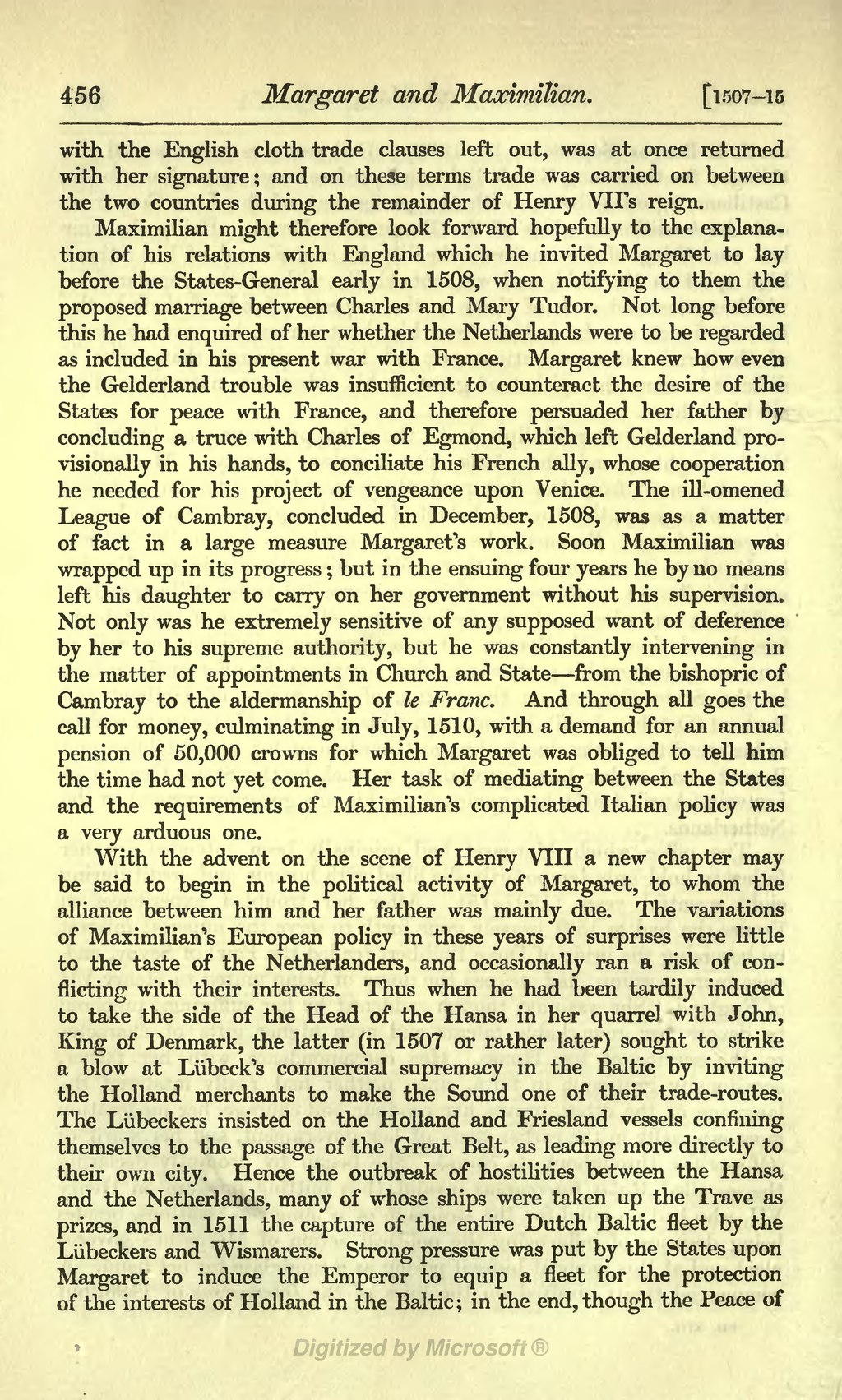with the English cloth-trade clauses left out, was at once returned with her signature; and on these terms trade was carried on between the two countries during the remainder of Henry VII's reign.
Maximilian might therefore look forward hopefully to the explanation of his relations with England which he invited Margaret to lay before the States-General early in 1508, when notifying to them the proposed marriage between Charles and Mary Tudor. Not long before this he had enquired of her whether the Netherlands were to be regarded as included in his present war with France. Margaret knew how even the Gelderland trouble was insufficient to counteract the desire of the States for peace with France, and therefore persuaded her father by concluding a truce with Charles of Egmond, which left Gelderland provisionally in his hands, to conciliate his French ally, whose cooperation he needed for his project of vengeance upon Venice. The ill-omened League of Cambray, concluded in December, 1508, was as a matter of fact in a large measure Margaret's work. Soon Maximilian was wrapped up in its progress; but in the ensuing four years he by no means left his daughter to carry on her government without his supervision. Not only was he extremely sensitive of any supposed want of deference by her to his supreme authority, but he was constantly intervening in the matter of appointments in Church and State-from the bishopric of Cambray to the aldermanship of le Franc. And through all goes the call for money, culminating in July, 1510, with a demand for an annual pension of 50,000 crowns for which Margaret was obliged to tell him the time had not yet come. Her task of mediating between the States and the requirements of Maximilian's complicated Italian policy was a very arduous one.
With the advent on the scene of Henry VIII a new chapter may be said to begin in the political activity of Margaret, to whom the alliance between him and her father was mainly due. The variations of Maximilian's European policy in these years of surprises were little to the taste of the Netherlanders, and occasionally ran a risk of conflicting with their interests. Thus when he had been tardily induced to take the side of the Head of the Hansa in her quarrel with John, King of Denmark, the latter (in 1507 or rather later) sought to strike a blow at Lübeck's commercial supremacy in the Baltic by inviting the Holland merchants to make the Sound one of their trade-routes. The Lübeckers insisted on the Holland and Friesland vessels confining themselves to the passage of the Great Belt, as leading more directly to their own city. Hence the outbreak of hostilities between the Hansa and the Netherlands, many of whose ships were taken up the Trave as prizes, and in 1511 the capture of the entire Dutch Baltic fleet by the Lübeckers and Wismarers. Strong pressure was put by the States upon Margaret to induce the Emperor to equip a fleet for the protection of the interests of Holland in the Baltic; in the end, though the Peace of
